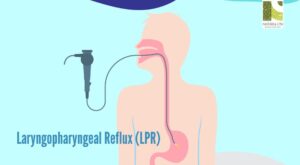Let’s Talk About HPV: What You Need to Know About the Silent Virus

By Team Nellikka.life | Your Gateway to Better Health
Do you know that over 80% of Cervical Cancers in India Are Caused by HPV — But They’re Largely Preventable
Yes, we’re talking about HPV – Human Papillomavirus — a virus that affects millions, yet often hides behind a veil of myths, silence, and stigma.
At Nellikka.life, we believe in bringing truth to light, and empowering you with authentic, science-backed information. Let’s decode the mystery around HPV and why being informed could make a world of difference — for you and your loved ones.
What is HPV?
HPV is a group of over 100 related viruses, some of which are spread through skin-to-skin contact — especially sexual contact. While many types of HPV are harmless and go away on their own, certain high-risk strains can lead to cancers, particularly cervical cancer in women.In India, HPV (Human Papillomavirus) is a significant public health concern, particularly among women. Studies show that nearly 6.6% of women in the general population are infected with high-risk HPV types, with HPV-16 and HPV-18 being the most common strains linked to cervical cancer. Alarmingly, over 80% of cervical cancer cases in India are attributed to HPV infection, and the country accounts for nearly one-fourth of the world’s cervical cancer deaths. Despite the high prevalence, awareness and vaccination rates remain low — highlighting the urgent need for education, screening, and preventive care.
Why Should You Care?
- HPV is incredibly common. Almost 80% of sexually active individuals will get HPV at some point in their lives.
- It often shows no symptoms. Most people don’t even realize they have it.
- High-risk strains can cause cancer. Especially cervical, anal, throat, and penile cancers.
- But here’s the good news: HPV is preventable.
Prevention is Power: The HPV Vaccine
One of the most powerful tools we have is the HPV vaccine — a safe, effective, and widely recommended way to protect against the most dangerous strains of the virus.
Who Should Get the Vaccine
- Girls and boys between the ages of 9 to 14 (most effective if given before sexual activity begins).
- Catch-up vaccination is recommended up to age 26.
- In some cases, it may be given up to age 45, depending on individual risk.
Screening Matters
For women, regular cervical screening (Pap smear or HPV test) is vital. Early detection can save lives.
- Pap tests can detect abnormal cells before they turn into cancer.
- HPV testing identifies the virus directly, even before any damage occurs.
Busting Common Myths About HPV
“Only women get HPV.”
Men can get and spread HPV too — and are at risk for HPV-related cancers.
“I’m married/in a long-term relationship, so I don’t need to worry.”
HPV can stay dormant for years. It’s still important to get screened and vaccinated if eligible.
“The HPV vaccine promotes early sexual activity.”
This is a myth. Research shows no link between vaccination and sexual behavior. The vaccine is about health, not morality.
What Can You Do Today?
- Talk to your doctor about the HPV vaccine — for yourself or your children.
- Schedule regular screenings if you’re a woman aged 21 or above.
- Start the conversation — break the silence around HPV in your family or friend circle.
- Support science-based awareness by sharing what you’ve learned.
At Nellikka.life, We Believe in Health Without Stigma.
Our mission is to equip you with the knowledge that empowers. HPV doesn’t have to be a taboo topic — it’s a public health conversation that deserves space, attention, and action.
Stay informed. Stay protected.
Because prevention is always better than cure.
Follow us on Instagram @nellikka.life for more wellness stories, expert interviews, and tips for everyday health.
#HPVAwareness #VaccinesWork #WomensHealth #PreventCancer #NellikkaLife #HealthWithHeart #ScienceOverStigma #LiveWiseLiveWell





